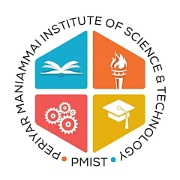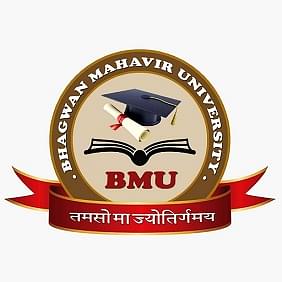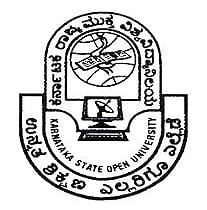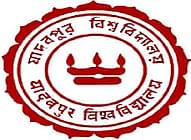Master of Science in Biomedical Engineering Introduction, Admission,
Eligibility 2024
Introduction to Master of Science in Biomedical
Engineering
In the ever-evolving
landscape of healthcare and technology, the fusion of engineering principles
with medical sciences has paved the way for groundbreaking innovations that
have revolutionized patient care and treatment modalities. At the forefront of
this interdisciplinary frontier lies the Master of Science in Biomedical
Engineering—a program designed to equip aspiring engineers and scientists with
the knowledge, skills, and expertise to tackle complex challenges in
healthcare, biomechanics, and medical device development.
How can I Apply for Admission to Master of
Science in Biomedical Engineering?
Process for Master of Science in BiomedicalEngineering at top universities in India follows these general steps:
Research Programs: Start by researching
universities or institutions offering Master of Science in Biomedical
Engineering programs. Look for programs that align with your academic
interests, career goals, and location preferences.
Review Admission Requirements: Each
program may have specific admission requirements, so carefully review the
eligibility criteria, prerequisites, and application deadlines. Common
requirements may include a bachelor's degree in engineering, biology, or a
related field, minimum GPA, GRE scores (if required), letters of
recommendation, statement of purpose, and transcripts.
Prepare Application Materials:
Transcripts: Request official transcripts
from all undergraduate institutions attended.
GRE Scores: If the program requires GRE
scores, register for the exam and arrange for your scores to be sent to the
institutions you're applying to.
Letters of Recommendation: Reach
out to professors, employers, or mentors who can provide strong letters of
recommendation highlighting your academic abilities, research experience, and
potential for success in the program.
Statement of Purpose: Write a
compelling statement of purpose outlining your academic background, research
interests, career aspirations, and why you're interested in pursuing a Master
of Science in Biomedical Engineering.
Resume/CV: Prepare a comprehensive resume
or curriculum vitae (CV) detailing your education, work experience, research
projects, publications (if any), and relevant skills.
Additional Requirements: Some
programs may require additional documents, such as a writing sample or a
portfolio of relevant work.
Complete Online Application: Submit
your application through the university's online application portal. Follow the
instructions carefully and ensure that all required materials are submitted by
the deadline.
Pay Application Fee: Pay the
application fee as required by the institution. Some programs may offer fee
waivers for eligible applicants, so check the application guidelines for
details.
Track Application Status: Monitor
the status of your application through the university's application portal. You
may be able to track whether your application materials have been received and
whether any additional documents are required.
Interview (if applicable): Some
programs may require applicants to participate in an interview as part of the
selection process. Prepare for the interview by researching the program,
reviewing your application materials, and practicing potential interview
questions.
Await Admission Decision: Once
you've submitted your application, wait for the admission decision. This
process may take several weeks to months, depending on the program's timeline.
What is the eligibility for a Master of Science
in Biomedical Engineering?
Eligibility
requirements for a Master of Science in Biomedical Engineering at the top affordable college in India can vary depending on the institution offering
the program and its specific admission policies. However, here are some common
eligibility criteria that applicants typically need to meet:
Educational Background: Applicants are generally required
to have a bachelor's degree from an accredited institution. The degree may be
in biomedical engineering, mechanical engineering, electrical engineering,
chemical engineering, computer science, biology, physics, or a related field.
Some programs may specify a minimum GPA requirement for undergraduate coursework.
Prerequisite Courses: While not always mandatory, some
programs may require applicants to have completed specific prerequisite courses
during their undergraduate studies. These courses may include mathematics
(calculus, differential equations), physics, chemistry, biology, and
engineering fundamentals.
GRE Scores: Some institutions may require
applicants to submit scores from the Graduate Record Examination (GRE). The GRE
General Test assesses verbal reasoning, quantitative reasoning, and analytical
writing skills. However, an increasing number of programs are becoming
test-optional or waiving the GRE requirement, so it's essential to check the
specific requirements of each program.
English Proficiency: For international applicants whose
native language is not English, most institutions require proof of English
proficiency. This can typically be demonstrated through standardized tests such
as the TOEFL (Test of English as a Foreign Language) or IELTS (International
English Language Testing System). Minimum score requirements may vary depending
on the institution.
Letters of Recommendation: Many programs require applicants to
submit letters of recommendation from professors, employers, or other
individuals who can speak to the applicant's academic abilities, research
experience, work ethic, and potential for success in graduate studies.
Statement of Purpose: Applicants are often asked to
submit a statement of purpose or personal statement outlining their academic
background, research interests, career goals, and reasons for pursuing a Master
of Science in Biomedical Engineering. This document provides an opportunity for
applicants to showcase their passion for the field and articulate how the
program aligns with their aspirations.
ABOUT US












